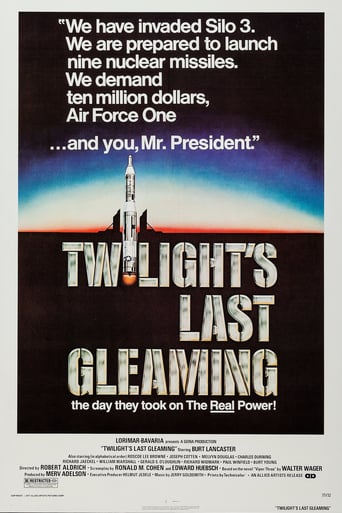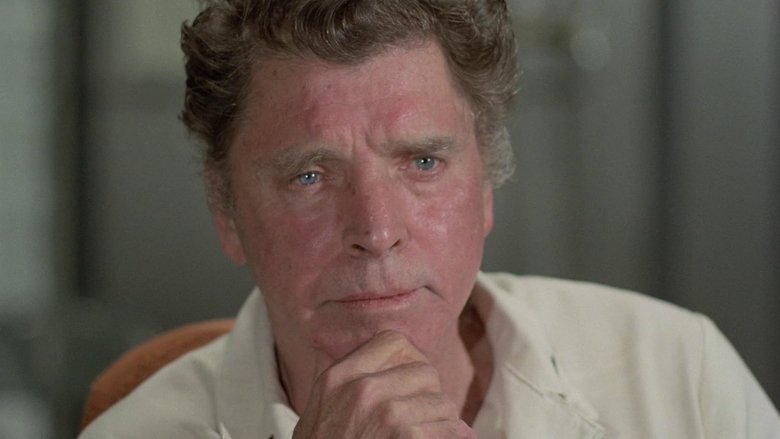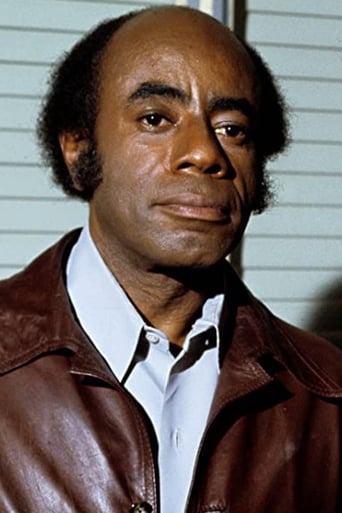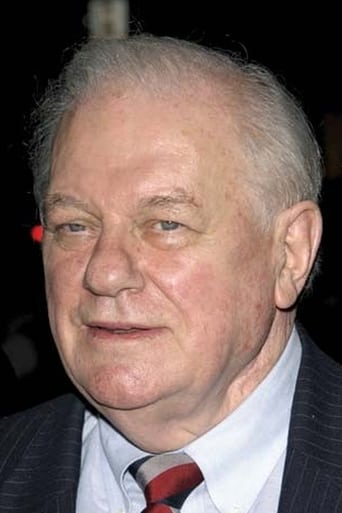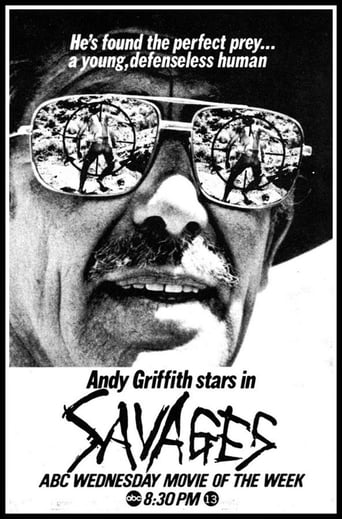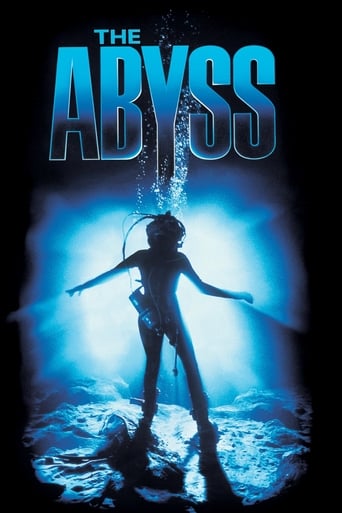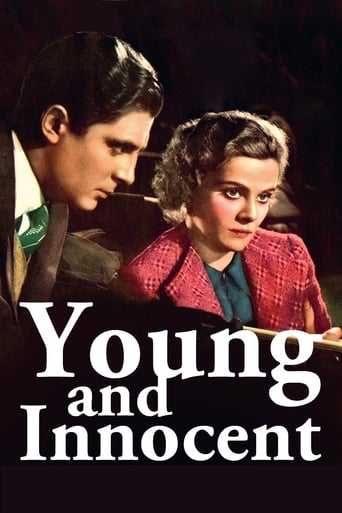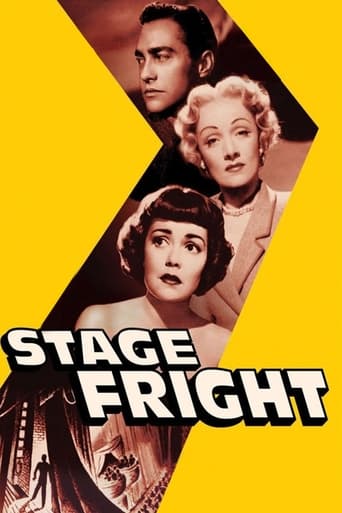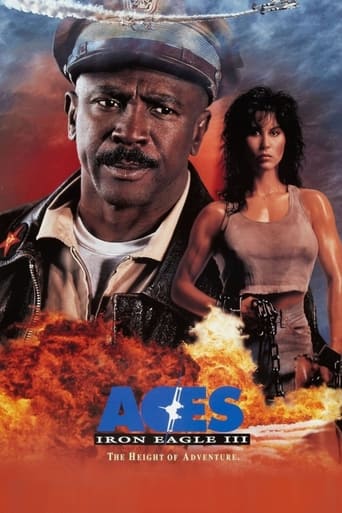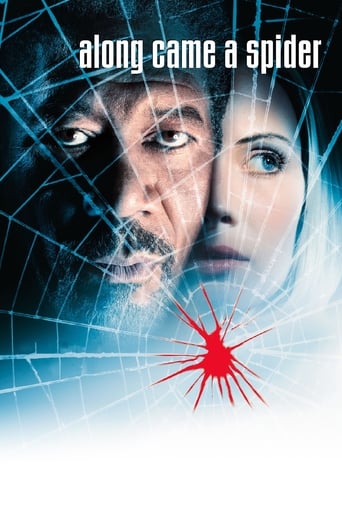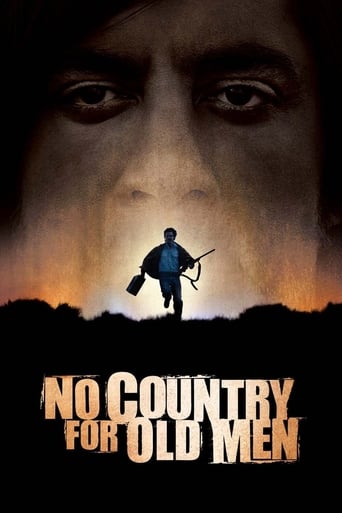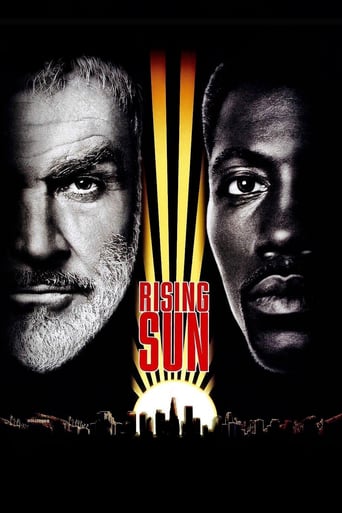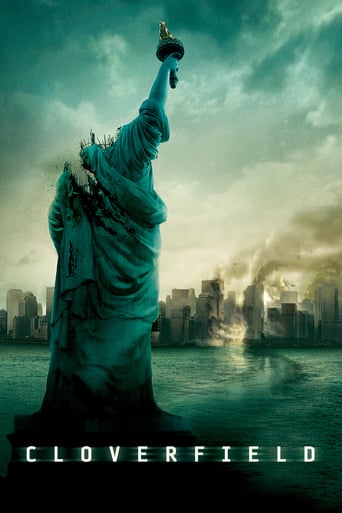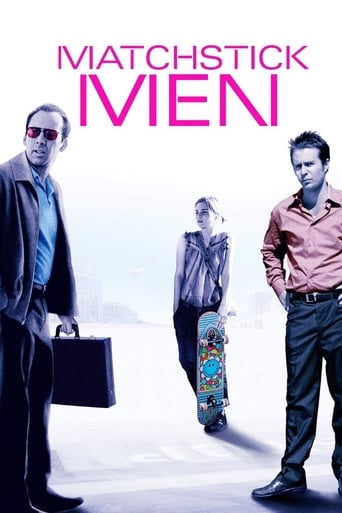Twilight's Last Gleaming (1977)
A renegade USAF general, Lawrence Dell, escapes from a military prison and takes over an ICBM silo near Montana and threatens to provoke World War 3 unless the President reveals details of a secret meeting held just after the start of the Vietnam War between Dell and the then President's most trusted advisors.
Watch Trailer
Cast


Similar titles
Reviews
Powerful
If you don't like this, we can't be friends.
The acting in this movie is really good.
All of these films share one commonality, that being a kind of emotional center that humanizes a cast of monsters.
1977 was a year of some high profile bombs which later achieved some cult status such as Cross of Iron, Sorcerer and Twilight's Last Gleaming. This partially came about from the competition from a certain film called Star Wars which offered a more optimistic and hopeful cinematic experience. As someone who has mixed feeling on New Hollywood, these movies don't deserve to be ignored the way they are and are some of the best hidden gems of the 1970's. Likewise the trashy, conspiracy theory concept of Twilight's Last Gleaming would be the ire of many high brow critics but it's the high concept which makes Twilight's Last Gleaming irresistible and helps the viewer to look past the implausibility of the premise. This is a film which trades it's logic for emotion and is aware of its own implausibility ("How in the hell does some joker walk into a top secret installation and get control of the most sophisticated weapons system in the world?"). As a layman it feels believable within the context of the movie but it's always fun to ask, could it happen in real life?Twilight's Last Gleaming features an ironic use of 'My Country Tis of Thee' during the opening and closing credits; it's not exactly a happy movie. Oddly however Jerry Goldsmith's score sounds like something from an action/adventure blockbuster and is even John Williams like at time. The action takes place over a single day in what can be described as Dog Day Afternoon like scenario in a missile silo for a film which you could mistaken as being based on a stage play with its handful of sets and lengthy scenes. On my first viewing I wasn't convinced the running time was justified but watching it again I was hooked. Twilight's Last Gleaming takes is set in the future year of November 16th, 1981 although it's not stated why it's set on this particular date.Burt Lancaster was still getting some great roles into the 1970's. He still had his mojo and now with a beat up face to boot. As one of the character's in the film puts it, "with that rhetoric he could be elected governor in ten states". Lancaster's role of General Lawrence Dell draws parallels to his role of General Scott in the political thriller Seven Days In May; a megalomaniac going to extremes in order to fulfil his agenda despite the risks to the United States and the world as a whole. He may be trying to provide a catharsis to the pain and anger of Vietnam veterans but at what cost? Lancaster and co star Paul Winfred have an enjoyable chemistry between them and provide comic relief with their back and forth. It's interesting seeing Lancaster sparring off with actors much younger than him as well as dropping some F-bombs. On top of that there is something surreal about watching Burt Lancaster drinking a can of Coca-Cola. Product placements for Coca-Cola appear at several points throughout the film with Coke vending machines in clear sight; I guess they have to answer to The Coca-Cola Company.Twilight's Last Gleaming consists of veteran actors talking some serious stuff. The discussions in the Oval Office scene are alot to take in on one viewing ("Ralph! Are you comparing Vietnam to Hitler?!" - It always goes back to Hitler). The movie is full of entertaining one liners - "It's like Star Trek all over again", "Come on this isn't Disneyland" and my favourite, "There are no midgets in the United States Air Force". The oldest among this cast is Melvyn Douglas, the prime example of an actor who got better with age as clearly evident here; full of powerful subdue comments and monologues ("The beginning of the end of mankind, in graphic black and white").The film's extensive use of split screen works remarkable well and does not feel like a gimmick creating a unique viewing experience; the split screen here is clearly not an afterthought. The entire sequence in which missiles are about to be launched is presented entirely in split screen with events being monitored in three different locations in order to heighten the tension. The scene itself is one scary sequence with the pandemonium and the sight of the missiles rising (the model of the silo exterior is shown on screen just briefly enough not to notice they are models). The President himself describes it best - "The opening of the doors of hell".The President in Twilight's Last Gleaming played by Charles Durning is not an idealistic representation of a president nor is he massively charming and ultimately a bit drab. However we do get to see his human side during a scene in which he talks to his General alone and admits to being scared out of his mind. At the beginning of the film there is a scene in which the President has a conversation with a character played by Roscoe Lee Brown. It doesn't have purpose in the plot but does set the tone of the White House scenes and foreshadows the rest of the movie ("If I grant Zabat sanctuary, I give approval to every dissident with a cause and a gun").The ending of Twilight's Last Gleaming all comes down to the question of whether or not society can deal with the truth? With widespread distrust in the government starting with the assassination of JFK and not getting any better with the Watergate scandal, would the President's cabinet reveal the movie's purported truth on the Vietnam War to the American public like he ordered before being shot down in an attempt to take down the two men holding him hostage. However was his death even an accident or did they intend to let him be shot down in order to keep the truth hidden; it does seem odd that no medical aid is given to him after being shot. The ending is left ambiguous and the viewer is left to think about it.
Burt Lancaster, a former officer, and three buddies break out of jail and commandeer a missile complex, threatening to use the weapons unless their demands are met.I'd hate to count the number of time that Richard Widmark has played the frustrated and perplexed Air Force general in charge -- I'll just mention "The Swarm" in passing -- because all of the roles were fungible. He always paces around, hands behind his back, wearing a blue uniform festooned with ribbons and medal, snarling about the SNAFU. They could have spliced clips of one role into any of the other stories. He was frustrated and perplexed as an officer in "Panic In The Streets" too, but at least there he was in the Public Health Service and only a captain.Of course, the authorities are alerted and assault teams sent on their way. Meanwhile Lancaster and his buddies have a couple of captives. That means a delicate balanced must be observed because we don't want a star like Lancaster to be too much of a heavy. Yet, the team needs the combination to the safe or some other MacGuffin. Lancaster is a humanitarian but his men have no scruples. One of them murders a few airmen and Lancaster has to put him down. And then Burt Young, completely miscast and unable to act, pokes out the eye of one captive with a screwdriver in order to get the combination. The half-blind captive is Richard Jaekel who has been in every war movie made since the beginning of time.And I hate to say this because I've admired the work of the director, Richard Aldrich, elsewhere, but here he yields to the obsession afflicting so many directors of the period and uses split screens, sometimes not just double but triple. It's very distracting. Look up Liddel's work on the induction of experimental neuroses in sheep. I hold Andy Warhol and "Chelsea Girls" responsible.There's another prominent irritation. In these kinds of movies, whenever anyone speaks into a microphone or telephone they lapse into a telegraphic style of speech, the pattern than linguists call a "register." The police register is most familiar to us. "The subject abandoned the vehicle and was seen entering the residence." But, I swear, I was a radioman for years in the US Coast Guard and nobody talks that way unless they're sending a formal message by voice. Operational exchanges sound exactly like those you and I make when we call up to complain about our TV service. Nobody eliminates pronouns. And the sight of someone speaking into a telephone and saying things like, "Execute Plan B. Do not -- repeat, do not -- enter the fortress", only prompts an urge to itch a scratch that can't be reached.The script is unoriginal in other respects. The president, Charles Durning, informed of the situation, shouts into the telephone, "Do YOU mean to tell ME that some loony GENERAL has got his finger on the BUTTON?" Does that ring true? The object of Lancaster's treasonous move was to get the president and the other suits in Washington to tell the American people "the truth." Granted, that's often hard to define but not in this context. Lancaster wants the president to admit that the American enterprise in Vietnam was a fraud from beginning to end.There's a lot of argument among the president's advisers but it's all pointless because by the release of this film, 1977, everybody who cared to know the truth already knew it. Thousands of lives and now you can buy Vietnamese companies on the stock market. They sent a plane full of relief supplies to the victims of Katrina in 2011. The expenditure of lives and money came to nothing.Like the Vietnam war, the movie doesn't turn out well for anyone.
This was quite the film. A movie based on the movements of the government, and their way of doing business overseas in the vein of war. Vietnam, the most controversial subject in history. A man who's deranged idea to stop war is by using a missile silo to make his point. General Dell (Burt Lancaster) is a man who's poised into stopping the black ops with his government so that the people can make a choice in the face of tyranny. Yet to achieve this, he had to overtake a missile silo armed with Titan nuclear warheads in order to make his dream a reality. Although no one person wishes to use them in the haste of war, in dell's mind it is the only option left other than diplomatic means to which his own fellow officers denied him, and placing him in prison for thirty years.I really liked how they had Charles Durning play the president. To find out how the seemingly trust worthy governments kept a well hidden secret from the public eye and ear about what the Vietnam War was all about. To hear about how many lives were lost just because the idea of war is big business to those money cartels all over the world. And to find out that even a few of his own staff members were apart of such devious plots to show the Russians that they meant business in case both countries went to war later in the future.However none of this would ever come to light, for his good friend Zachariah Guthrie (Sec of Defense) was asked by the president to make public the secret meeting for which the war was implemented from in the white house. That the last word would be from Guthrie himself. Except during the last moments of the president's life, Guthrie never kept his word, and the president died in vain.All in all, I thought this was an exceptional film. Emotions running ragged in all corners of the white house, dell, and his cohorts. To see the joint chiefs combining efforts to hush up the well kept secret so that more wars in the distant future could flourish under the noses of the same American's who wanted nothing to do with wars in the first place. To see a leader gunned down like JFK for believing in the people rather than their own military might, or black ops behind the curtain. It was a roller coaster ride of emotional turmoil, set behind a stream of deceit, lies, greed, and above all a totalitarian attitude the world can do without.A very gritty film based on the people's views on war, and why it has no place among the human populace. Highly recommended to those over 17.
I 'm going to counterbalance the previous two reviews. The only reason it's considered "absurdist left-wing" fodder, is that the two reviewers still didn't understand the hatred of that war of course being divided into this left wing-right wing B.S. wedge that the 2 term administration has firmly slammed into the American Consciousness. The original reviewer doesn't realize that several Vietnam Vets overran the Pentagon, went to Washington D.C. and literally threw their medals. This was a film, that was a catharsis for many overwhelming numbers of PEOPLE THAT ACTUALLY FOUGHT THE WAR experienced.The movie is a cat and mouse thriller with Burt Lancaster demanding attention from the White House by controlling a missle silo/bunker complex. As a former Air Force General with high security clearance, he knows how to complete the mission. The film is a study on why a decorated General threatens to start WW III.On the opposite side of the fence lies the President, played by Charles Durning whose aim is to stop him. The supporting actors are outstanding on all accounts, Richard Widmark, Paul Winfield, Burt Young, Melvin Douglas, to name a few. The actors making up the presidents cabinet are outstanding. The cabinet/advisors must decide- is the General a mad man or can he pull off his threat of missle launch. What is his agenda? The ending is a shocking, uncompromising statement on what happens in a political chess match. The military adviser tells the president, the buck stops here.... you are responsible, even for past transgressions from a previous presidency. I like the fact that a military person says " our way of life can survive the truth."

